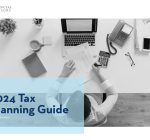7 Major Stressors for Digital Marketers & How to Deal
- 178 Views
- admin
- May 28, 2022
- Technology
Working in the field of digital marketing can be extremely demanding. Perhaps it’s time to rethink the causes and confront your major stressors.
Stress is unavoidable while working in digital marketing. It’s a requirement of the job.
You can’t be effective until you occasionally push your boundaries.
However, if you’re constantly anxious, it may be time to examine the causes and confront your major stressors.
Seven of the most common sources of stress for digital marketers are listed here, along with some advice on how to deal with them.
Measuring Metrics
The Stress
Measuring metrics isn’t difficult in and of itself. Metrics’ stressful aspect occurs in two kinds.
First, there’s the outcome of metrics.
Let’s say you’ve been working on a campaign for six months and have poured your heart and soul into it.
You’ve put in more than full-time hours on the campaign and accomplished what you set out to do, plus more.
The campaign is then brought to a close, and the results are calculated. The metrics show that, despite your best efforts and following the advice of the specialists, your objectives were not met.
You’ve spent the rest of your budget on a campaign that hasn’t yielded results for the past six months. Insert a wistful sigh.
So you take the data from the campaign and argue that it wasn’t a complete failure because you learned more about user behavior, targeting, ad text, and keywords.
Now it’s time to go begging for additional funds and try once more. Put some pressure on the situation.
The second component of metric stress is where I see the most difficulty with digital marketers. This is what it’s like to have no metrics at all! Yes, it occurs. I like it a lot.
Take, for example, content metrics. Although 81 percent of marketers incorporate content into their marketing plans, 65 percent struggle to quantify the effectiveness of their content marketing efforts.
That’s more than half of the people who don’t know (or are having a hard time figuring out) what metrics they’re expected to measure.
How to Deal
Right away, set yourself up for success rather than stress.
You should define the most crucial aspect of this campaign in the early phases of developing your strategy.
Is it a case of direct sales? How do you get more people to watch your videos? Perhaps it’s as simple as tripling engagement rather than a monetary figure.
In either case, you must first specify the major goal, followed by the secondary, tertiary, and so on.
Because the primary aim isn’t always reached, especially in the first round, it’s critical to go beyond simply defining the campaign’s main purpose.
Plus, rather than focusing on a single indicator, you should have a few others to measure to quantify some success or total failure.
Low to no Budgets
The Stress
A digital marketer’s job becomes much more demanding when they don’t have a budget or have a very small budget to deal with.
Low-to-no budgets are sometimes accompanied by exorbitant expectations.
These expectations could include things like generating 10,000 new leads with a homemade YouTube video and no advertising money to promote it. What a tense position this is!
How to Deal
Not everyone is fortunate enough to have a large or “experimental” budget.
However, as digital marketers, we must be prepared to collaborate with both big and small firms.
You’ll be able to tell your boss or client what they can expect if they spend X amount if you set realistic expectations from the start.
No, we are unable to foresee the future.
Yes, we all wish for the best and work hard for it, but by knowing what can and cannot happen within a given budget range from the start, you can avoid a lot of disappointment and worry.
Return to your desk after the budget meeting and run your calculations based on what you’ve seen in the past.
Get a sense of how much it costs to achieve similar goals and how long it took.
Then, depending on X’s budget, write a report that clarifies what has worked, under what conditions, and a projection of what your boss or client should anticipate receiving.
Google Updates
The Stress
We make every effort to remain on top of any change you make.
We even strive to plan ahead of time for updates and algorithm adjustments. Despite this, Google, you continue to cause us, digital marketers, a great deal of anxiety with each new upgrade.
A huge change could have occurred in the blink of an eye, affecting our websites or the websites of our clients. Most of the time, they have a negative impact.
So, yeah, Google, you do occasionally worry me out.
How To Deal
Staying on top of everything that happens in the industry, just like Google does, is one of the greatest methods to deal with Google’s stress.
User behavior, cyber bugs, spam, and a variety of other web issues are all monitored by Google.
You should do the same. This will enable you to better estimate when changes will occur and what types of changes are most likely to occur.
Subscribing to the best SEO blogs is a good idea. These blog pieces are authored by specialists, some of whom have strong ties to Google and long track records, allowing them to better predict, adapt, and share techniques with other marketers.
Wearing Too Many Hats
The Stress
You can bet all the money in my wallet ($4 and change) that you wear more than one hat, whether you work in-house, for an agency, or operate your own company.
In-house marketers typically strive to do everything, including SEO, UX design, social media management, PPC management, and content marketing.
Employees at the agency have their specialties, yet they frequently find themselves aiding other divisions.
The business owner, on the other hand, knows better than anyone how to balance 50 different sorts of hats on their heads at the same time.
How to Deal
Concentrate solely on your field of expertise.
Yes, keep up with the millions of updates happening across the digital marketing industry, but devote your primary attention and research to honing your niche’s art.
Prioritize the most important goals for your expertise, and then explore how you might help in other sectors if time allows.
Subscribe to both overarching digital marketing podcasts like Edge of the Web and more specific podcasts like the Perpetual Traffic Podcast, which focuses solely on Facebook, if you’re a social media marketer.
This will keep you up to date on trends, developments, and strategies in both the industry and your specialization.
Lack of Strategy Development
The Stress
The pressure is always on to get things done quickly and effectively.
Although it’s now common knowledge that digital marketing takes T-I-M-E, we all expect results now.
This is why so many expenditures are squandered because we jump right into trying to achieve outcomes without first formulating a strategy to get us there.
How to Deal
Define your objectives, as well as your requirements, and then devise a strategy to bring you there. Don’t go backward in time.
The following is an example of a new project or campaign flow:
Define your target audience: Who will be the target of this campaign? Who are you attempting to contact?
Define the objective: What are you hoping to achieve with this campaign? What are your major and secondary goals?
Establish a budget: How much money do you have to invest in this campaign? How long do you believe it will take you to reach your goal?
Establish a strategy: What’s the most efficient way to get there? What form of marketing can assist you in achieving your goal? Do you require advertisements? What kind of material are you looking for?
Put the plan into action: Combine one to four and try the method you’ve chosen.
Define the outcomes: Were there any outcomes? Have you gathered any information? How closely did you stick to the aim, and how far did you stray?
Do it once more.
Not Generating Conversions
The Stress
With your PPC campaign, you finally located the sweet spot and were able to reduce the cost per click by 40%. The clicks are coming in thick and fast, and they’re coming from precisely where you want them to.
Despite this, no one is interested in purchasing. Even though website traffic is at an all-time high, no one is converting. Why?!
How to Deal
When it comes to obtaining clicks but no conversions, there is always a problem with the landing page or website itself.
To determine if you can figure out what’s causing folks to leave without converting, look at the following:
Page Speed: How quickly does the page load? People will not wait if it takes too long to load, and you will receive the click but not the conversion. “Two seconds is the threshold for e-commerce website acceptance,” says Maile Ohye, a former Googler. At Google, we strive for a response time of less than a half-second.”
Is it difficult to navigate your website? If I arrive at a website that is too overwhelming, I will quit without even reading the material. What I mean by too overwhelming is a pop-up box that takes up 3/4 of the page and doesn’t have a clear way to close it, a site that is 90% text with no obvious path on which text box to read first, and movies that start playing automatically but then freeze after two or three seconds. Send the site to ten different individuals (a diversity of people) and get comments if you think your design is outstanding but you’re still not getting conversions.
Is the content they clicked ongoing to be what they get from the landing page/website? If you offer a 50% discount and direct consumers to your “New Shoes” category page, you shouldn’t be surprised if you get a lot of clicks but no conversions. Make sure your message corresponds to the content of the page.
Grammar Errors
The Stress
The to-do list is growing, and we need to publish that piece of material as soon as possible. So we scramble to put the finishing touches on it, add a little branding flair, and send it off.
Your phone buzzes with a Twitter notification mentioning the brand and a screenshot of the subject line, “How to Tackle Technical SEO on a Low Budget,” in approximately 24.5 seconds. Your heart is sinking, but you’re not alone.
How to Deal
Take it easy!
I promise you, that re-reading your material before publishing or having a colleague look at it overtakes a lot less time than sending out an apology social media post, an outsize email newsletter, and restarting the campaign.
Don’t take yourself too seriously if you’re not flawless. We’re all human, and mistakes happen, but if you take an extra minute to double-check your work before publishing, you’ll make fewer mistakes.





